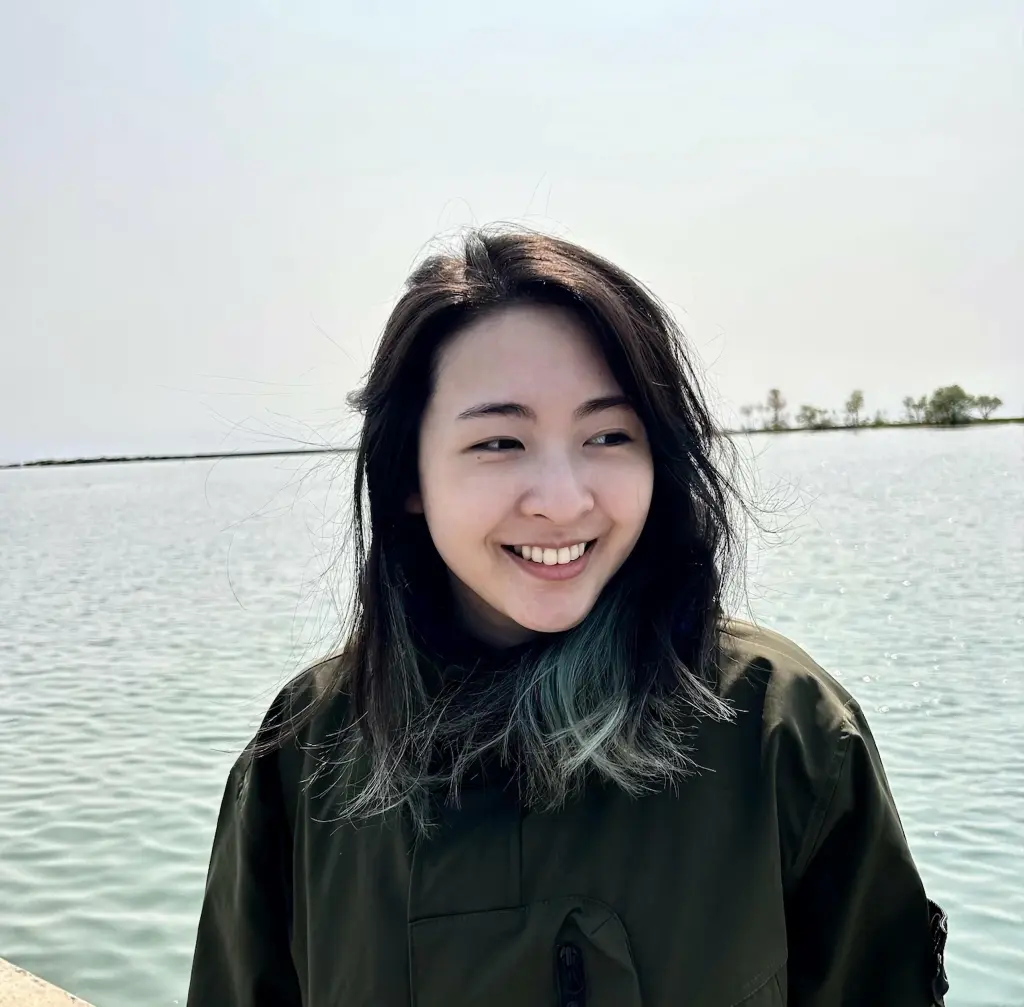Some Thoughts with ... Ai Jiang
6 May 2025The Author/s

Ai Jiang
Ai Jiang is a Chinese-Canadian writer, a Nebula Award finalist, and an immigrant from Fujian. She is a member of HWA, SFWA, and Codex. Her work can be found in F&SF, The Dark, Uncanny, The Masters Review, Prairie Fire, among others. She is the recipient of Odyssey Workshop’s 2022 Fresh Voices Scholarship and the author of Linghun and I AM AI. Find her on Twitter (@AiJiang_) and online (http://aijiang.ca).
The Interview
1.- Could you introduce yourself to Jamreads’ readers?
Ai Jiang is a Chinese-Canadian writer, Ignyte, Bram Stoker, and Nebula Award winner, and Hugo, Astounding, Locus, Aurora, and BFSA Award finalist from Changle, Fujian currently residing in Toronto, Ontario. Her work can be found in F&SF, The Dark, The Masters Review, among others. She is the recipient of Odyssey Workshop's 2022 Fresh Voices Scholarship and the author of A Palace Near the Wind, Linghun, and I AM AI. Find her at www.aijiang.ca
2.- How did you start writing?
I started writing in the second/third grade, finishing a book of about 25 pages—a portal fantasy about a school of devils with flying wolves. In middle school, I wrote supernatural fiction about kids with powers inspired by my reading of Kelly Armstrong’s books. I’ve always loved reading and writing, but never saw it as a viable career until much later.
3.- Could you tell us about the initial idea of Linghun and how it landed a publishing house?
Linghun had an interesting path to publication. The editor of Dark Matter Magazine, Rob Carroll had reached out to me to ask if I’d written any long form back in 2022. At that point, I hadn’t, but I said I’d be keen to try. Originally, Linghun had started out as an 800-word flash fiction piece published in Ghostlore : An audio fiction anthology that later became a single scene in Linghun and was expanded upon.
4.- Why would you say grief is an integral part of your writing?
I feel like I often contemplate the idea of lost—the people, the homes, the selves we lose or let go of in our lifetimes and the melancholy that accompanies the resulting grief.
5.- What was the idea of I Am Ai? The cover is also a great calling point for that novelette, could you describe us a bit of the process of creating it?
I Am Ai was largely inspired by my own experiences as a ghost writer and the burnout work environment and ideas of toxic productivity that isn’t uncommon of our own labour markets that require workers to work longer and harder and compete for the few work positions available. It explores thoughts I myself had about work-life balance, community and career, as well as human fragility. As for the cover, my mom had painted the original watercolor on canvas before Alan from Shortwave had colour adjusted the digitized image of the portrait to better suit the genre of cyberpunk. I’d added the tech elements to the image using Procreate. I really loved how collaborative the cover process was.
6.- A Palace Near the Wind is your most recent novella, first in the Natural Engines duology. Could you tell us a bit about this book?
It is essentially a Blue-Beard-esque story about nature versus industrialism where nature takes the form of Blue-Beard’s wives and the humans are Blue-Beard. A Palace Near the Wind is set in a secondary world following a princess of nature who is of a race of tree people with the ability to borrow wind. The princess must enter an arranged marriage with the king of the Palace to halt the progress of expansion towards her home. I will note though, this book doesn’t have a romantic subplot.
7.- How would you say Chinese traditions are blended into this book?
I would say the deeply ingrained values of duty, responsibility, and familial loyalty in characters who are seemingly not human, as well as the sacrifices past generations must make for those who come after—even if sometimes those sacrifices end up harming rather than mending.
8.- You’ve been Nebula nominated, and won an Ignyte. How do you feel about it?
It’s an honour to have been the winner for both the Nebula and Ignyte awards, as well as the Bram Stoker award. I’m truly grateful for how many readers have read my works, and enjoyed them enough to nominate and vote for them as well.
9.- Apart from long fiction, you have also published a fair amount of short fiction. Does the chip change much from one format to other?
Oh, for sure. Short form and long form to me are like two completely different species. With short fiction, it’s relatively easy for me to see the big picture of the story and how it would unfold, but with long form I often have trouble piecing together all the moving parts and wrestling them into coherent plots and arcs.
10.- How would you say it is an Ai Jiang’s writing day?
It is often chaotic, to say the least, and there isn’t quite a stable routine. Sometimes I’m writing from the moment I wake and much into the next day—sometimes for 12 hours straight, sometimes up to 24 hours or more. Other times I might not be writing at all but catching up on shows and dramas and anime, or answering emails I’ve left sitting for too long, or reading books for blurbs.
11.- What can we expect from Ai Jiang in the future?
The second book in the Natural Engines duology, A River From the Sky is forthcoming in April 2026, as well as my debut novel An Empire Above Opera in September 2026—the standalone prequel An Opera of Salamanders will be published September 2027. Hopefully I’ll have news soon about the books I’ve written and still need to be sold, so fingers crossed!
